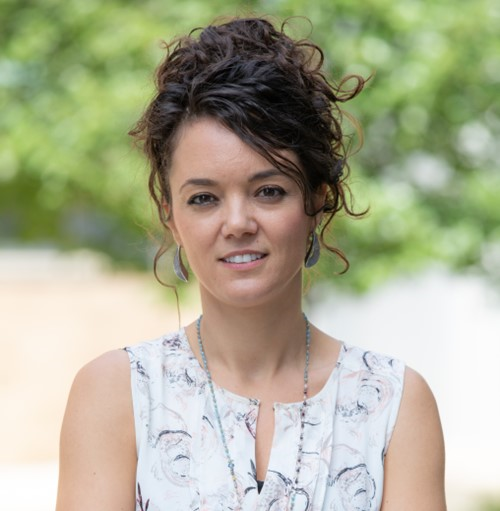Date: Wednesday, October 19, 2022
Time: 9:30-10:30AM
Location: Rauch Business Center, Room 241
This event features Eranda Nikolla, who will talk about “Embracing the Complexity of Heterogeneous Catalytic Structures”, as part of the Lehigh University Chemical and Biomolecular Engineering's Fall 2022 Colloquium Seminar Series.
Abstract
Shaping the energy landscape toward renewable energy resources is a contemporary challenge that will require significant advancements in the development of catalysts/electrocatalysts for energy and chemical conversion processes. The goal of our research group is to design active, selective and stable heterogeneous catalysts and electrocatalysts for these processes. We have focused on utilizing the versatile structure of non-stoichiometric mixed metal oxides, along with controlling the 3-dimensional environment of heterogeneous catalytic sites via “inverted” catalytic architectures, as potential avenues for addressing limitations with the current state-of-the-art catalytic/electrocatalytic systems.
In this presentation, I will discuss our work on designing non-stoichiometric mixed metal oxide electrocatalysts for electrochemical oxygen reduction and evolution reactions (ORR/OER). These processes play an important role in electrochemical energy conversion and storage technologies, such as fuel cells and electrolyzers. We have utilized a combination of controlled synthesis, kinetic analysis, advanced characterization and ab initio calculations to identify the factors that govern the activity and stability of non-stoichiometric mixed metal oxide electrocatalysts with the aim of identifying cost-effective, active and stable electrocatalysts for oxygen reduction and evolution.
In the second part of my talk, I will highlight our efforts on controlling the 3-dimensional environment of heterogeneous catalytic sites via “inverted” metal@metal oxide catalytic architectures or surface bound ligands on metal nanoparticles as levers to tune activity/selectivity in thermal catalytic reactions. Specifically, I will discuss our recent work on utilizing reducible metal oxide encapsulated noble metal catalytic structures to promote hydrodeoxygenation (HDO) of biomass-derived compounds. We have demonstrated that the enhancement in HDO activity/selectivity induced by the encapsulation of the metal nanoparticles with an oxide film results from the high interfacial contact between the metal and metal oxide sites, and the restrictive accessible conformations of aromatics on the metal surface.
About the Speaker
Eranda Nikolla is a Professor in the Department of Chemical Engineering at the University of Michigan-Ann Arbor. Prior to this, she was a Professor in Chemical Engineering and Materials Science at Wayne State University. Her research interests focus in the development of heterogeneous catalysts and electrocatalysts for chemical conversion processes and electrochemical systems (i.e., fuel cells, electrolyzers). As an integral part of engineering catalytic/electrocatalytic structures, Nikolla has implemented a paradigm which involves a combination of controlled synthesis, advanced characterization, kinetic measurements and quantum chemical calculations to unearth the underlying mechanism that governs their catalytic performance for targeted reactions. Her group’s impact to catalytic science has been recognized through the National Science Foundation CAREER Award, the Department of Energy Early Career Research Award, Camille Dreyfus Teacher-Scholar Award, the Young Scientist Award from the International Congress on Catalysis, the 2019 ACS Women Chemists Committee (WCC) Rising Star Award, the 2021 Michigan Catalysis Society Parravano Award for Excellence in Catalysis Research and Development, and the 2022 ACS Catalysis Lectureship for the Advancement of Catalytic Science.
Department/Program:

